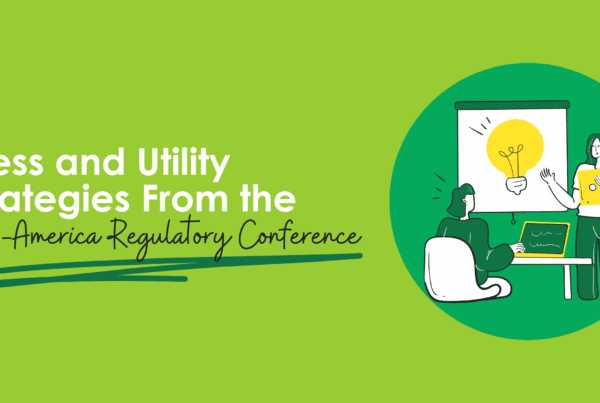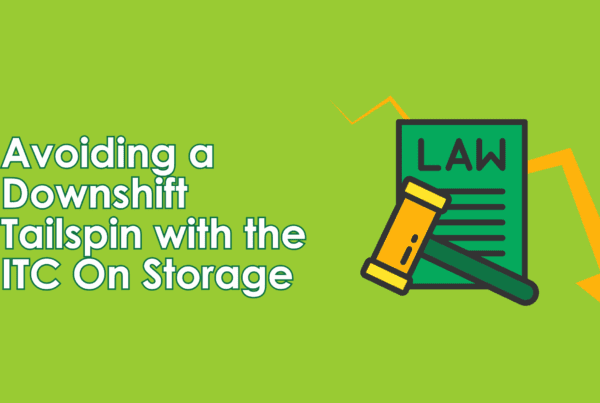
I love reading and scoring abstracts, so sign me up! This post provides advice for abstract writing to get selected for a paper, award, webinar, or article.
But first, a secret: I advise that you pay attention because my scores are heavily weighted. How do you do that, Jeff? Easy. On a scale of one to five, where five is best, I give a few fives, and I assign the rest to purgatory or hell with a two or one, respectively. That gives more muscle to my opinions – like 4x compared to folks who score 4s and 5s on everything. In other words, I score pass/fail with few in the pass column.
Alrighty then, let’s get into the things to do and not do.
No Advertising
I estimate that 20% of the abstracts I review are cloaked ads. The audience doesn’t want ads, and typically the sponsoring organization (AESP, ACEEE, et al.) says no advertisements. We don’t want to hear how the Illudium Q36 Explosive Space Modulator does this or the Illudium Q36 Explosive Space Modulator does that. We only want to know how it efficiently destroys planets versus other approaches and why it matters.
Figure 1 The Illudiaum Q36 Explosive Space Modulator
 Lastly, we can see or read your name and organization. From there, we have devices, the internet, search engines, and social media (LinkedIn) to find you. We don’t need to hear about your company.
Lastly, we can see or read your name and organization. From there, we have devices, the internet, search engines, and social media (LinkedIn) to find you. We don’t need to hear about your company.
Your Credentials, Not Your Company’s
I care little about your company’s expertise. We’re not looking to hire a company to write a paper. YOU are writing the paper. This goes for job interviews too. We want to know what YOU did and what YOU would do or not do in certain situations.
Add Credibility
This may seem a bit at odds with the previous tip, but including the client or (gasp) an evaluator in your abstract for a paper or presentation adds credibility to the findings, results, and conclusions.
Concise and Precise
Be brief but not too brief. While I hate looking at a wall of words, I want the gist of your proposed paper or presentation. I need more than a topic and “I might do this, or I might do that to collect data and insights for the article.” Be firm. Commit to your sources and define those sources by name if a company or program, or position or title if a person.
Results or Conflict Required
No hand waving, please. We want data, results, disinterested parties’ opinions, and hard evidence to demonstrate success or lessons learned. Projections and hypotheticals are more challenging to attract my favor.
One good example I remember is “Occupy Wall Street and the Tea Party Battle over Efficiency,” a 2012 ACEEE Summer Study paper and presentation. In these cases, make it spicey, informative, contrasting, and engaging. What does any successful story need? Conflict or contrast, like the Rant. I’m not writing for the agreement of an echo chamber. I’m writing to provide different perspectives, describe opposing views, and hopefully open some eyes to things.
Eye Rollers
There are many lists of words and phrases that are overused, burned out, and do little for or even damage an abstract. Some of my favorite eye-roller words and phrases include:
- Firsthand
- Real-world
- Innovative
- Unique
- Extensive experience
- Robust
- Track record
Unfortunately, sometimes these words are appropriate. Some people are supremely detail-oriented or results-driven when most people are not. In those cases, prove it immediately and make it pithy: bam, bam, bam, bam – with facts or testimonials that prove or vouch for such claims.
Steer (pun alert) Clear of The Old 96er
I’ve been writing since I left college, and I can tell when content described in an abstract will never fit within the page limit, word limit, or time limit of the venue. When I read an abstract for a twelve-page paper and can see that you’re trying to devour the Old 96er (Aykroyd is the best), believe me when I say, you’ll never get all that packed into the paper. Take the petite-cut sirloin topic instead.
For a real-world example (did that make you throw up a little?), a few years ago, an abstract for a conference paper had already been approved, and I was assigned to review the ensuing paper for the conference. The approved abstract for the paper included three electrical-load disaggregation studies to be packed into twelve pages. I thought, dude, that is an Old 96er, and it was. But the die was cast, and the ship sailed – right into a shallow reef as expected.
Answer the Question
If writer qualifications are requested, don’t respond with an overview of the topic, how great your company is, or what it’s done. Doing so tells me what the writer doesn’t want me to hear – that they are not qualified or presumptuous. Writers must explain what they have done and why I should pick them to write, present, or speak.
Earn It
Earn it every time. Don’t take things for granted – like yourself or your company are well known for X. I don’t care. For example, I recently reviewed an abstract from Ellen Steiner, Ph.D., Opinion Dynamics. I’ve known Ellen for many years, and any paper or article she would produce would be outstanding. But she didn’t rely on that. She wrote a thoroughly crushing abstract as though she were a draft pick trying to make the majors.
Conversely, I torpedoed two others from prospective authors who appeared to have similar credentials and experience, maybe(?) But they didn’t make any effort to convince me. Bzzzzt!




